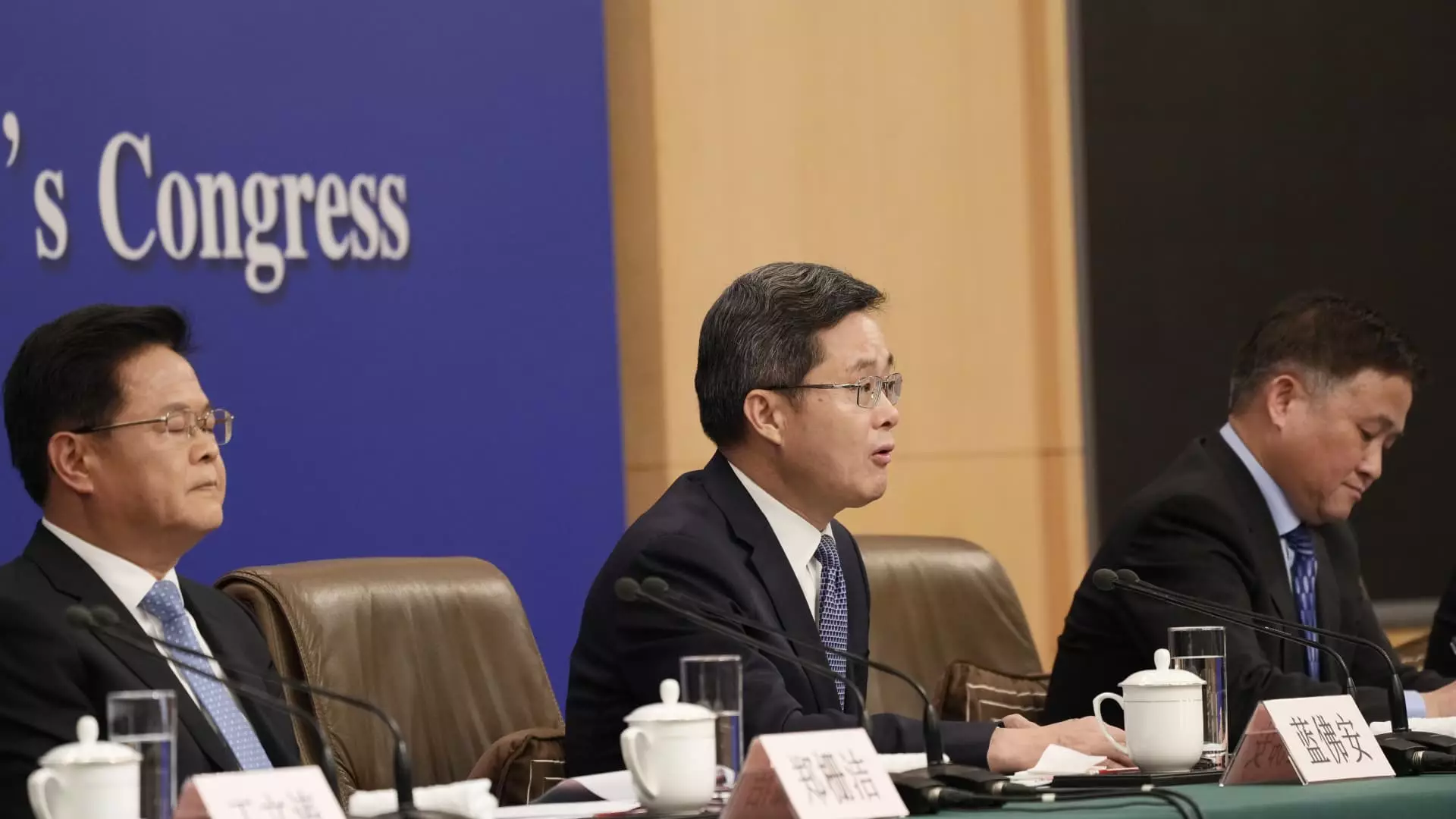The economic situation in China has become increasingly complex, as evidenced by Finance Minister Lan Fo’an’s recent statements regarding the potential for increased government debt and deficits. The ongoing discussions within the central government highlight an urgent need to address pressing economic challenges, particularly those affecting local governments, the real estate sector, and job creation for the youth. While there seems to be a recognition that additional fiscal support is necessary, specifics about any forthcoming measures have yet to materialize, leaving markets and observers in a state of uncertainty.
Minister Lan indicated that various policy options are being considered to stabilize the economy, especially in response to the rising debt risks faced by local governments. Analysts suggest that an infusion of fiscal stimulus, estimated anywhere between 2 trillion yuan (approximately $283.1 billion) and a staggering 10 trillion yuan, could be in the works. However, the approval process for such a stimulus package appears to be a significant hurdle, as it typically requires sanction from China’s Parliament. This bureaucratic necessity could lead to delays in timely implementation, adding to the existing economic woes.
The lack of concrete announcements during a recent series of high-level discussions led by President Xi Jinping has sparked speculation regarding the nature and timing of any fiscal intervention. Economists have posited that the government must not only consider the volume of funds allocated but also the strategic deployment of those resources. There is a pressing question of whether any resultant policy will prioritize shoring up local government finances or focus on stimulating consumer spending amidst the ongoing challenges.
The sluggish growth of China’s retail sales over the past few months raises concerns about domestic demand, which is crucial for sustainable economic recovery. Coupled with a continuing downturn in the real estate market, which comprises a substantial segment of the economy, the GDP growth rate of 5% recorded in the first half of the year has led to mounting skepticism regarding the possibility of meeting the annual target of around 5%. With the upcoming third-quarter GDP figures expected on October 18, the stakes are high for the Chinese government to present a coherent strategy that not only addresses immediate economic challenges but also instills confidence in investors and consumers.
The recent volatility in the stock market further emphasizes these challenges. Following a truly extraordinary rally—driven by expectations of impending fiscal stimulus—the market has experienced fluctuations that have reverted major indexes to levels reminiscent of late September. This erratic behavior underscores the fragility of market sentiments influenced by both domestic policies and global economic dynamics.
Interest Rate Cuts and Investment Initiatives
In a bid to combat the downturn, the People’s Bank of China (PBOC) has taken proactive steps by reducing interest rates and extending measures to bolster the real estate sector. The central bank’s decision to allow institutional investors to borrow substantially for stock purchases marks a strategic move to stimulate market activity and restore confidence. The National Development and Reform Commission (NDRC) also pledged to expedite the use of previously allocated funds for investment projects, underscoring a commitment to enhance infrastructure and development initiatives. However, these measures have yet to deliver the expected robust economic rebound, as observed in the ongoing hesitance of markets.
As China navigates the treacherous waters of economic recovery, the path forward will be dictated by the government’s capacity to implement targeted fiscal measures effectively. The focus should ideally be on maintaining fiscal discipline while simultaneously fostering economic growth. Policymakers must prioritize transparency and speed in their decision-making processes to build confidence amongst investors and the public.
The interplay between government action and market response will be crucial in determining the extent of recovery and stability in the Chinese economy. As stakeholders await further announcements, the urgency of coherent and effective solutions cannot be overstated. The international community will be keenly observing China’s approach, as it could have far-reaching implications for the global economy, especially as it strives to balance its internal dynamics with external pressures.

Leave a Reply